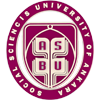The graduates of the Department of Political Science and Public Administration will be able to analyze historical and contemporary developments critically and multi-dimensionally and will be able to develop academic and institutional solutions to political problems in order to create a better social order. In accordance with our university’s educational policy, our department prepares undergraduate and graduate curricula and course syllabi with an interdisciplinary understanding by collaborating with other departments and research centers in our university.
The discipline of political science studies political institutions such as states, constitutions, political parties; political ideals such as freedom, justice and equality; political regimes such as democratic, authoritarian and totalitarian governments; political ideologies such as liberalism, conservatism, nationalism and socialism; and political concepts such as authority, legitimacy, and power in an historical and comparative manner.
Public administration is a “modern” form of governing that concretizes the abstract idea of state, and corresponds to organization of bureaucracy, law, local government and finance in public life. Public administration as a discipline of social sciences studies the organization and operation of executive power and the decision-making, policy making and implementation processes of government agencies.
Our departmental concentration topics are located at the intersection of political science and public administration and include democracy, gender, violence, social and political movements, identity and ethnicity among others.
Besides pursuing an academic career, our graduates would be employed at prominent state institutions, international organizations, political parties, think-tanks, civil society organizations, media or international private sector organizations.
Those graduates who want to pursue an academic career could apply for national or foreign post-graduate programs. The education provided by the faculty prepare the student for post-graduate process through getting them gained the ability and skills of conducting a scientific investigation by themselves as well as writing and conducting a research. In addition, the application of an undergraduate program having an ECTS validity, the opportunity of studying with academicians who have foreign educations and professional networks with foreign universities would be the most important advantage for our graduates who are at the beginning of their academic career.
Those graduates who want to pursue a career in state institutions would be employed at all state ministries, undersecretaries, and other state institutions and organizations.
Those graduates who want to pursue a career at international institutions would be employed at United Nation and associated units such as UNESCO, UNICEF, UNHCR, UNDP and other international organizations such as World Bank and OECD.
Those graduates who want to pursue a career at think-tanks, media and çivil society organizations would be employed as analyst, specialist, programmer, writer and researcher.
